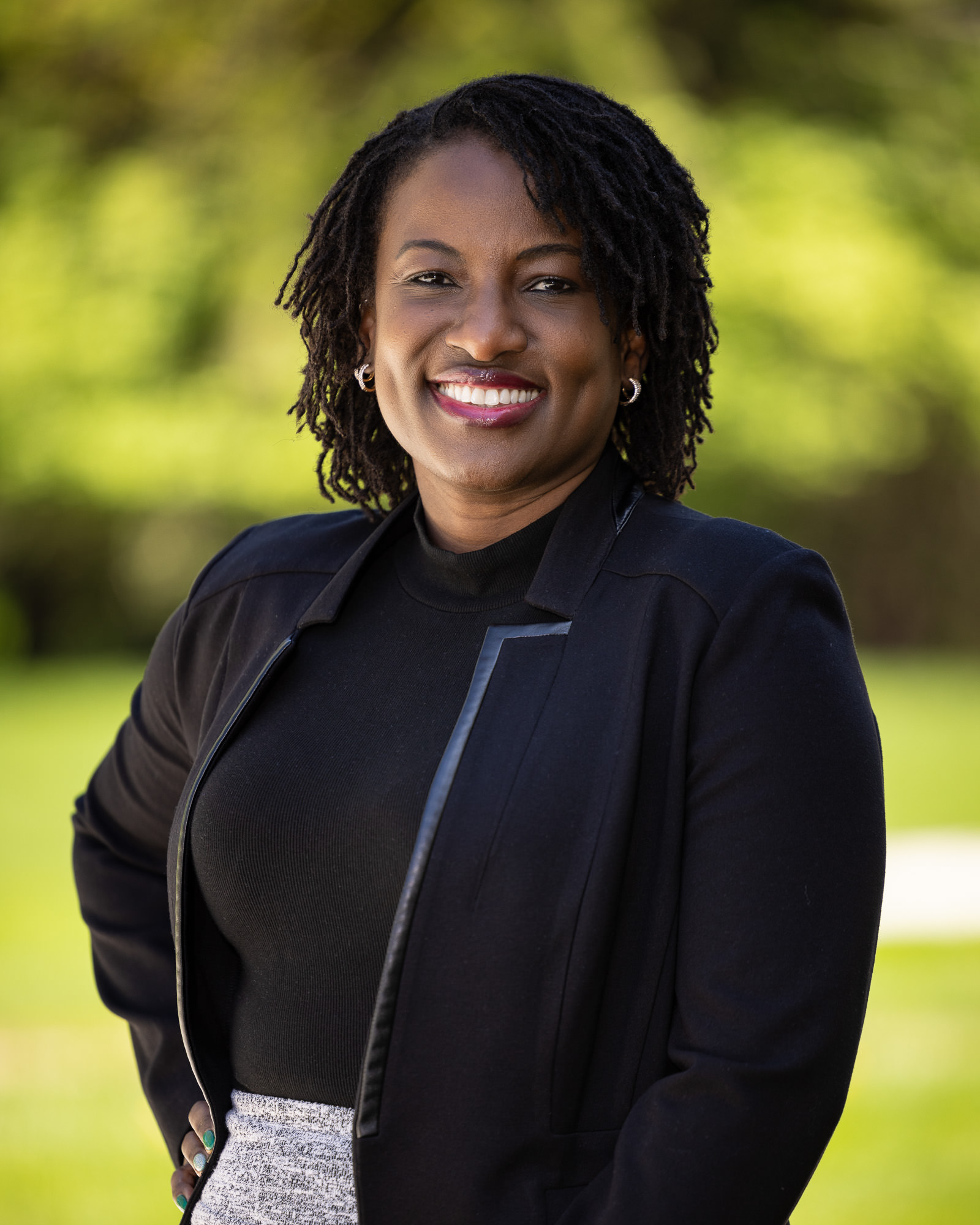Bimpe Dada, ECON ’00
The head of the Credit Management Operations Excellence team within TD Bank recently lead a finance-focused career chat hosted by the University of Maryland Alumni Association
Although Bimpe Dada, ECON ’00 admits that she didn’t have the typical college experience, she still says that she “had a great time” at the University of Maryland—and that she still uses some of the skills she honed as an undergraduate in her current role as the Director of TD Bank’s Credit Management Operations Excellence team.
Bimpe grew up in Nigeria, where she initially attended the University of Ibadan to study sociology. “I wanted to study economics there, but I didn’t get into the economics program; I got into the sociology program. In Nigeria, you take what you get,” explained Bimpe with a laugh.
After moving to the U.S., Bimpe first continued her education at Adelphi University in New York, and then headed to the University of Maryland to finish the last two years of her bachelor’s degree program.
“Coming to Maryland, I knew I wanted to study economics,” recalled Bimpe. “Initially, I wanted to study economics and then go back to Nigeria and work in some capacity to support fiscal policy. But when I finished my degree, because I’ve always enjoyed learning about human behavior and why we do the things we do, I thought I might want to do work related to helping people with financial services.”
She got a taste of what that kind of work was like after she graduated in 2000, when she worked for a small financial planning firm in Rockville. But then things shifted, physically and metaphorically: Bimpe moved to Texas where she earned her master’s degree in economics from the University of Texas at San Antonio, and then she wound up moving to Florida, where she took a retail banking job at a small community bank.
“I was having conversations with people and helping them solve problems related to their personal finances or their business finances, but I missed analyzing things and advising people on ‘this is what we need to make happen to have this other thing happen.’ So, there was an opportunity within that small community bank to become a credit analyst, and that’s how I transitioned into the banking space that I’ve been in for about 20 years now,” explained Bimpe, the director of TD Bank’s Credit Management Operations Excellence team.
Over the course of her 17-year career with TD Bank, Bimpe has been a Commercial Credit Analyst, Credit Specialist, Account Manager/Portfolio Loan Officer—a position that allowed for direct client engagement—and a Project Management Profession (PMP)-certified Project Manager. As a Project Manager, she helped modify and create processes that made the underwriting process simpler and more efficient, an act that earned her the TD Bank CEO Leadership Award, an annual recognition for the best of the best at TD Bank.
“The ability to take things, break them apart, and make a clearer picture are skills that were honed at Maryland that I continue to apply,” said Bimpe. “Game theory concepts are another that can be applied broadly; how do you have conversations where we try to get a win-win, or minimize the loss in a win-lose situation.”
Even outside of TD Bank, Bimpe works to make sure more people are in a position to win, financially speaking. At a late June career chat discussion hosted by the University of Maryland Alumni Association, Bimpe offered attending alumni advice on avoiding/breaking the paycheck to paycheck cycle, on how to have good credit, and on how to assess an employer’s compensation package.
The importance of budgeting and how to do it—via an Excel file, via mobile apps, whatever is sustainable for you, Bimpe says—was also discussed. The 50-30-20 rule—which involves accounting for 50% of your monthly income to go to fixed expenses (needs) like rent or a car payment, 30% to entertainment and/or charitable donations (wants), and 20% to investments or savings (future)—was also mentioned, with a note on it being OK to be a little flexible with those percentages as life circumstances change.
Not having a plan for your money and not knowing what is coming in versus what is going out is the thing Bimpe sees people struggle with the most, in part because talking about money is still considered taboo. But, she says, it’s never too early or too late to start keeping better track of what’s going into your bank account, and what’s being swiped out of it.
“Financial literacy is something that is so important to me personally because I think a lot of times, there's not enough talk about how financial decisions here or there might impact long-term success,” said Bimpe. “Start now. Understand credit, and keep an eye on your finances. Even if you have made a few mistakes, it’s never too late to start right, and head in the right direction. Remembering that money is a tool, it’s our responsibility to learn how to use it to get the best out of it.”

Published - June 28, 2024



